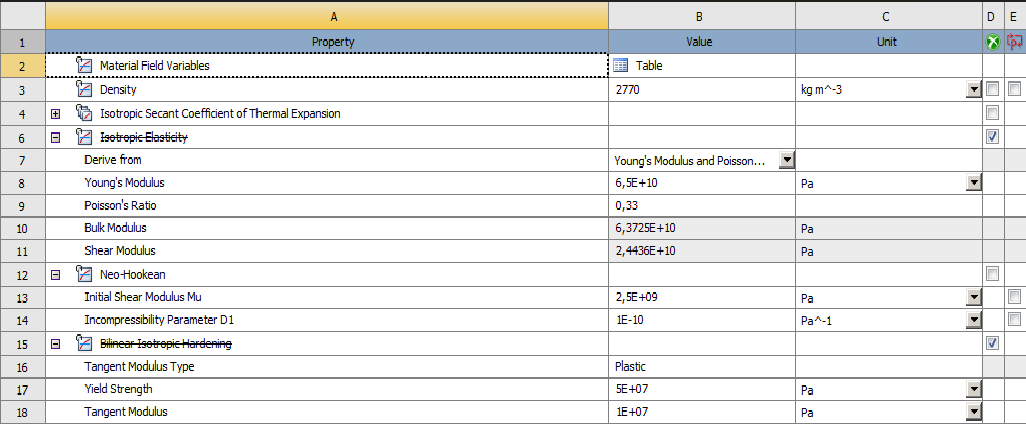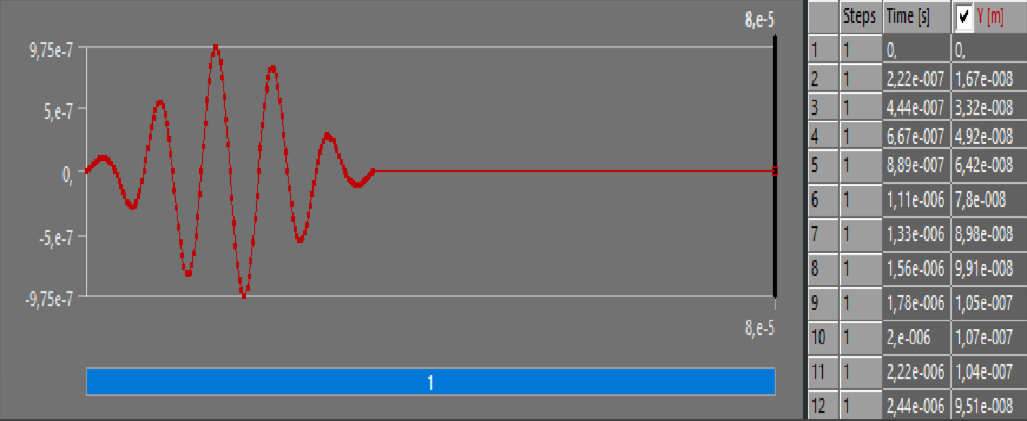-
-
August 1, 2025 at 1:54 pm
gwojcik
SubscriberHi everyone,
I am doing a research for my Master Thesis on excitation properties of Piezoceramic Transducers used in nonlinear acoustics.
For that I am performing a simulation in order to choose the best transducer for my experiments with laserovibrometer. Firstly I intended to use Couple Field Electric type of simulation to actualy cause piezo to deform and induce the Shear horizontal wave in thinwalled plate(500mmx500mmx1mm) made of copper/aluminium. But hence it is really computationally demanding simulation I decided to split the simulations to two. One that is exciting the piezo for collection of the deformation data from edges of the piezo. Second to use this data as a Displacement input on plate to see how the wave propagates and then use output for plotting wave charts etc.
The problem is that I now need to choose the correct nonlinear material model for the aluminium plate in order to be able to observe the higher harmonics on the output. But none of what I did gave me satisfactory results. Here are my simulation data:
Type of simulation: Transient Structural
Material: Alluminium alloy with neohookean/bilinear non linear models to intrudce nonlinearity ( find the photo of material data in the attachement)
Mesh: 1.5mm as it is small as I could get to saving computational time(It is still around 10h)
Displacement excitation ( find photo of the wave in the attachements) It is a hamming windowed sine wave of 150kHz with 5 cycles and amplitude of 1e-6 ( as it is the bigger theoretical displacement of piezo transducer)
I am collecting the deformation/velocity data in each of the directions X,Y,Z from points that are 100mm from the excitation point in the 1/4th of a circle one point on 1 degree from 0 to 90.
Time step of the simulation is a time step of the input signal.
Simulation time: I found that for the wave to propagate up to point I want to read it i need around 5*the signal length.
I need to take the output signal from the simulation and perform a fourier on it in order to observe higher harmonics but nothing significant shows up ( also screenshot attached)
Does any of you have an Idea of what to do or did something similar and is able to help urgently?
-
- You must be logged in to reply to this topic.



-
3572
-
1193
-
1076
-
1063
-
952

© 2025 Copyright ANSYS, Inc. All rights reserved.

.png)








